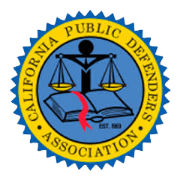
Dealing with a charge related to the possession of drugs can feel like navigating through a thick fog without a compass. Navigating the law can feel like wading through a swamp of confusing terms, scary penalties, and endless procedures that seem more aimed at baffling you than making things clear. But here’s your beacon in that fog – an insightful guide meant to clear up confusion and light your path forward.
Whether it’s understanding the severity of charges or exploring avenues for defense, knowing where you stand is crucial. Fighting in court isn’t only about the legal showdown; it’s more about grabbing back the reins of your life from situations that seem too tough to handle.
Table Of Contents:
- Montana Code Annotated 2023 Dangerous Drugs Offenses
- Criminal Penalties for Drug Possession in Montana
- Diversion Programs and Treatment Options for Drug Offenders
- Medical and Research Exceptions to Drug Possession Laws
- Conclusion
Montana Code Annotated 2023 Dangerous Drugs Offenses
Montana’s drug laws are no joke. Get caught with a controlled substance, controlled substance analog, or drug paraphernalia and you could be facing some serious penalties under the Montana Code Annotated.
Prohibited Acts and Penalties
Possession of a controlled substance is a big no-no in Montana. This law provides that no person shall knowingly or intentionally possess a controlled substance unless the substance was directly obtained from a valid prescription or order from a medical practitioner. If you’re caught with cocaine, heroin, Ecstasy, or other heavy hitters listed in Schedules I and II, you could be looking at a felony charge. And don’t even think about messing with coca leaves or opium poppy plants – that’s definitely going to land you in hot water with the law. As of July 1, 2023, drug possession and use in Montana are gross misdemeanors. This means if you’re caught with prohibited substances, you could face up to a year in jail and a hefty fine. But here’s the kicker – law enforcement is required to refer you to assessment and treatment for your first two arrests. It’s only on the third strike that they can actually prosecute you. Talk about a “three strikes and you’re out” policy.
Local Government Preemption on Drug Paraphernalia Regulation
If you thought you could skirt around Montana’s drug laws by sticking to drug paraphernalia, think again. The state has a tight grip on regulating all things drug-related, including paraphernalia. Local governments are basically powerless when it comes to setting their own rules on drug paraphernalia. Montana has fully preempted the field, meaning cities and counties have to fall in line with state law. So if you’re caught with a bong, pipe, or any other device used to consume controlled substances, you could still face criminal charges under Montana Code Annotated. Better to just steer clear altogether.
Criminal Penalties for Drug Possession in Montana
Possession of dangerous drugs is no laughing matter in Montana. If you’re caught with a controlled substance, you could be facing some serious jail time and fines, depending on the type and amount of drug involved.
Felony and Misdemeanor Charges
Montana doesn’t mess around when it comes to drug possession. Get busted with meth, cocaine, heroin or other heavy hitters and you could be looking at a felony charge, especially if you have a larger quantity on you. But even possession of smaller amounts of drugs can land you a misdemeanor. And if you’re a repeat offender, watch out – those penalties start stacking up quick. For example, possession of heroin is a felony if the amount involved is:
- 5 grams or more but less than 50 grams
- 50 grams or more but less than 100 grams
- 100 grams or more
The penalties range from a mandatory 1 year prison term up to a max of 20 years behind bars. Yikes.
Sentencing Guidelines
So how much time are we talking for a drug possession conviction? It all comes down to the type and amount of controlled substance involved. If you’re a first-time offender caught with cocaine or another Schedule II drug, you could face:
- Up to 1 year in jail, and/or
- A fine of up to $1,000
But if it’s your second or subsequent offense, those penalties shoot up to a max of 5 years imprisonment and a $5,000 fine. The judge isn’t messing around anymore.
Fines and Incarceration
Drug possession convictions don’t just come with jail time – they’ll also hit you right in the wallet. A first offense for heroin possession could set you back up to $5,000 in fines. And if it’s your second rodeo, that fine doubles to $10,000. Plus, you’re looking at a mandatory minimum of 1 year in prison, even for a first offense. And if you’re caught with a large amount of smack, you could be spending up to 20 years behind bars. Bottom line – drug possession is a pricey gamble in Montana. The fines are steep and the jail time is no joke. Better to just steer clear of controlled substances altogether.
Diversion Programs and Treatment Options for Drug Offenders
If you’re facing drug possession charges in Montana, it’s not all doom and gloom. The state does offer some diversion programs and treatment options to help you get back on track.
Eligibility Requirements
So who’s eligible for these coveted diversion programs? It all comes down to the specifics of your case. Generally, you may qualify if:
- It’s your first offense
- You were caught with a small amount of drugs
- You don’t have a lengthy criminal history
But ultimately, it’s up to the prosecuting attorney to decide if diversion is appropriate in your case. They’ll weigh factors like the type of drug involved, your age, and your willingness to seek treatment.
Court-Supervised Programs
If you do get accepted into a diversion program, you’ll likely be under court supervision for a set period of time. This means regular check-ins with a judge, drug testing, and participation in substance abuse treatment. Some common court-supervised programs for drug offenders in Montana include:
- Drug courts
- Veterans treatment courts
- Mental health courts
The goal is to address the underlying issues that contributed to your drug use and help you develop the tools to stay sober. Complete the program successfully and you could have your charges dismissed.
Rehabilitation Services
Montana recognizes that addiction is a disease that requires treatment, not just punishment. That’s why there are a variety of rehabilitation services available to drug offenders. Some options you might encounter include:
- Inpatient or outpatient substance abuse treatment
- Cognitive behavioral therapy
- Medication-assisted treatment for opioid addiction
You may also be referred to community-based organizations that provide support services like job training, housing assistance, and mental health counseling. The goal is to set you up for long-term success in recovery.
Medical and Research Exceptions to Drug Possession Laws
While Montana has strict laws around drug possession, there are some notable exceptions for medical and research purposes. Here’s what you need to know. Obviously, if you have a valid prescription from a licensed medical professional, you’re not going to face criminal charges for possessing that controlled substance. But it’s important that you follow your prescription to a T. Don’t share your meds with anyone else, and definitely don’t sell them. That’s a quick way to land on the wrong side of the law. Also, be prepared to show proof of your prescription if questioned by law enforcement. Keep your pill bottles labeled and handy, just in case.
Clinical Trials
Montana also carves out an exception for controlled substances used in approved clinical trials. These are drugs that are still being tested for safety and efficacy and aren’t yet available to the general public. Participants in these trials are allowed to possess the specific drug being studied, but only in the amount and manner approved by the research protocol. And the trial has to be sanctioned by the FDA and an institutional review board. So if you’re part of a legit clinical trial, you don’t need to stress about drug possession charges. But the second that trial ends, any leftover product needs to be returned or destroyed.
Authorized Health Care Professionals
Certain licensed health care professionals are also exempt from Montana’s drug possession laws in the course of their legit medical practice. This includes:
- Doctors
- Pharmacists
- Veterinarians
- Dentists
- Nurses
These practitioners can possess, dispense, and administer controlled substances as part of treating their patients or conducting research. But they have to follow strict federal regulations around record-keeping, storage, and disposal of these drugs. And if they step outside the scope of their professional practice to sell or use controlled substances illegally, they face the same criminal penalties as anyone else. Medical credentials are not a free pass to flout Montana’s drug laws.
Montana’s drug laws are strict, with serious penalties for possession. First-time offenders may get a chance at treatment instead of jail, but repeat offenses lead to tougher consequences. Always keep prescriptions documented and know that even paraphernalia can land you in trouble. Consider diversion programs for help getting back on track.
Conclusion
In wrapping up our journey through the murky waters surrounding possession of drugs, remember this isn’t just another statistic or case file – it’s about real lives caught in very challenging situations. It’s easy to get lost in legalese and forget there are human stories behind every charge.
The road might look tough ahead but think smart assistants rather than doomsday machines when considering legal help – they’re here to serve not scare. AI has its place in making chores manageable; similarly, informed legal guidance transforms daunting prospects into manageable steps towards resolution.
Above all else, keep hope alive. Just as technology evolves for better solutions, so too can situations turn around with thoughtful actions and expert advice by your side.




